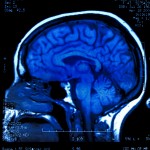Introduction
Attention deficit/hyperactivity disorder, commonly known as ADHD, is the diagnostic name given to a persistent developmental condition, characterised by a set of behavioural symptoms falling broadly into problems with inattention, hyperactivity and impulsivity. To meet diagnosis, these symptoms should occur across a number of settings, and result in impairment to day-to-day living.
It is said that roughly 2-5% of young people are affected by ADHD, though the precise numbers are unclear. It is more frequently diagnosed in boys.
Although traditionally associated with children, ADHD can be diagnosed at any age, and recent research has highlighted the impact of ADHD in adults. Diagnosis, however, is most commonly made in children aged six and upwards.
Alongside symptoms of ADHD, people often report difficulties relating to low mood, anxiety and disturbed sleep.
Like many developmental and mental health conditions, the symptoms exist on a continuum. Periods of restlessness and inattentiveness are perfectly normal and do not necessarily indicate ADHD.
What we know already
Through longitudinal studies, we know that often the symptoms of ADHD can improve with age; however, many adults continue to experience difficulties.
Similarly, we know that ADHD is more common in people with learning disabilities.
Through advances in neuroimaging and neuropsychological assessment, we have been able to gain a better understanding of the way ADHD affects cognition (e.g. working memory and other executive function),emotion regulation and behaviour. Similarly, we have gained a better understanding of neurochemical factors, such as the role of dopamine uptake.
Evidence suggests that multimodal treatments (i.e. combination of medication and behavioural therapy) can be highly effective in the management of ADHD.
Areas of uncertainty
The causes of ADHD remain largely unclear, although there appears to be a clear hereditary component. Similarly, other factors such as low birth weight, premature birth, brain injury, toxic exposure at an early age, and environmental factors have all been suggested.
Due to the historical lack of research into disadvantaged groups, we know less about ADHD in ethnic minorities; however, this is improving. Similarly, only relatively recently have gender differences been convincingly explored.
There had been considerable research, of varying quality, into alternative treatments of ADHD. Long-chain polyunsaturated fatty acids, for example, have been shown to demonstrate small positive effects, however this area of research remains methodologically weak.
What’s in the pipeline?
As neuroimaging techniques improve, there will no doubt be a greater understanding of which aspects of brain functioning are associated with symptoms of ADHD.
Similarly, genetic (and other causal) factors continue to be explored, improving our understanding.
Such increases in understanding of the causes and mechanisms involved in ADHD are likely to lead to improved, targeted, interventions. Whilst multimodal treatments have been shown to be largely effective, the benefit often dissipates over time. Similarly, whilst some people continue to improve following treatment, others do not. Developing these treatments will likely remain a priority.
References
Gillies, D., Sinn, J. K., Lad, S. S., Leach, M. J. and Ross, M. J. (2012). Polyunsaturated fatty acids (PUFA) for attention deficit hyperactivity disorder (ADHD) in children and adolescents. Cochrane Database of Systematic Reviews. [Abstract]
Murray, D. W., Arnold, L. E., Swanson, J., Wells, K., Burns, K., Jensen, P., … & Strauss, T. (2008). A clinical review of outcomes of the multimodal treatment study of children with attention-deficit/hyperactivity disorder (MTA). Current psychiatry reports, 10, 424-431. [Abstract]
Acknowledgement
Written by: Patrick Kennedy-Williams
Reviewed by: Joff Jones, Anna Adlam
Last updated: Sep 2015
Review due: Sep 2016














